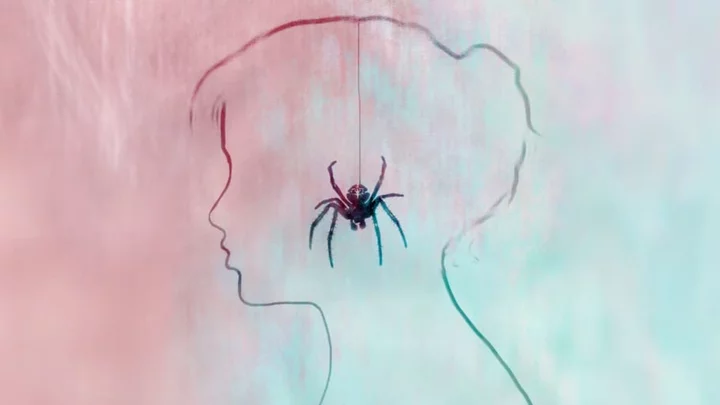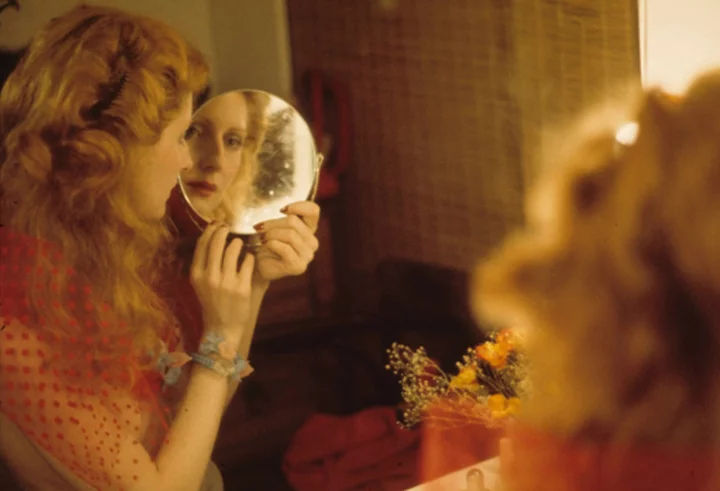by Alex Carter
It’s hard to think that authors who have sold millions of books could ever have been rejected, but everyone had to start somewhere. From James Baldwin to Gertrude Stein and beyond, some of literature’s most celebrated authors have faced stinging and ruthless rejections.
1. Herman Melville
Herman Melville’s masterpiece, Moby-Dick, was turned down by multiple publishers, some of whom apparently had creative suggestions for the author. It’s said that an editor from Bentley & Son Publishing House wrote: “First, we must ask, does it have to be a whale? While this is a rather delightful, if somewhat esoteric, plot device, we recommend an antagonist with a more popular visage among the younger readers. For instance, could not the Captain be struggling with a depravity towards young, perhaps voluptuous, maidens?”
Melville nevertheless got his tale of futile revenge published—by none other than Richard Bentley, of Bentley & Son. (The American edition debuted less than a month later.) That said, the author still made some serious sacrifices, paying for the typesetting and plating himself.
2. Ernest Hemingway
The Sun Also Rises is perhaps Ernest Hemingway’s most widely read work, but not everyone was a fan. In 1925, Moberley Luger of publisher Peacock & Peacock wrote to the 26-year-old author, “If I may be frank—you certainly are in your prose—I found your efforts to be both tedious and offensive. You really are a man’s man, aren’t you? I wouldn’t be surprised to hear that you had penned this entire story locked up at the club, ink in one hand, brandy in the other. Your bombastic, dipsomaniac, where-to-now characters had me reaching for my own glass of brandy.”
It’s a harsh assessment—though from what we know of Hemingway, it proposes a scenario that is not unlikely either. Still, this rejection hardly damaged his career. The novel would be published by Scribner's the following year.
3. James Baldwin
“All of us are convinced that this novel confirms your talent as a writer,” Knopf book editor Henry Carlisle wrote to James Baldwin of his novel Giovanni’s Room. “Our objection is not to the length or the subject of the book; we simply felt strongly that you are not successful in what you are trying to do. … we think that publishing this book, not because of its subject but because of its failure, will set the wrong kind of cachet on your writing and estrange many of your readers.”
4. George Orwell
Sometimes fellow writers give the thumbs down. In 1944, T.S. Eliot was working at Faber & Faber and wrote a largely apologetic rejection of Animal Farm to George Orwell that included this appraisal: “[W]e have no conviction (and I am sure none of other directors would have) that this is the right point of view from which to criticise the political situation at the present time … Your pigs are far more intelligent than the other animals, and therefore the best qualified to run the farm—in fact, there couldn’t have been an animal farm at all without them: so that what was needed, (someone might argue), was not more communism but more public-spirited pigs.” The work was rejected by at least four publishers before making it into print in August 1945.
5. Kenneth Grahame
“An irresponsible holiday story that will never sell” might possibly be the most whimsical description ever of the adventures of Mole, Rat, Toad, and Badger in the best-selling children’s tale The Wind In The Willows, which was rejected by a number of publishers before it was published in 1908.
6. H.G. Wells
One editor reportedly called H.G. Wells’s The War of the Worlds “An endless nightmare. I think the verdict would be ‘Oh don’t read that horrid book.”
7. Joseph Heller
“I haven’t the foggiest idea about what the man is trying to say,” one publisher wrote of Joseph Heller’s Catch-22. “Apparently the author intends it to be funny—possibly even satire—but it is really not funny on any intellectual level.” The book was initially called “Catch-18,” but according to Heller's daughter Erica, “he and his young editor, Robert Gottlieb, changed the title because Leon Uris’s novel had usurped the number with Mila 18 ... Bob, Dad’s übereditor at Simon & Schuster ... was the one to come up with the unremarkably remarkable number 22.”
8. Kurt Vonnegut
One of the more pleasant rejection letters was sent to Kurt Vonnegut by Atlantic Monthly in response to three writing samples: “We have been carrying out our usual summer house-cleaning of the manuscripts on our anxious bench and in the file, and among them I find the three papers which you have shown me as samples of your work. I am sincerely sorry that no one of them seems to us well adapted for our purpose. Both the account of the bombing of Dresden and your article, ‘What’s a Fair Price for Golden Eggs?’ have drawn commendation although neither one is quite compelling enough for final acceptance.” Vonnegut turned the Dresden bombing account into Slaughterhouse-Five.
9. Marcel Proust
“I rack my brains why a chap should need thirty pages to describe how he turns over in bed before going to sleep,” one publisher apparently wrote of Marcel Proust’s In Search of Lost Time. Proust ended up self-publishing the first volume; the finished product is the world’s longest book at 1.3 million words.
10. Vladimir Nabokov
One published called Vladimir Nabokov’s Lolita, published in 1955, “overwhelmingly nauseating, even to an enlightened Freudian … the whole thing is an unsure cross between hideous reality and improbable fantasy. It often becomes a wild neurotic daydream … I recommend that it be buried under a stone for a thousand years.”
11. Rudyard Kipling
When Rudyard Kipling pitched a short story to the San Francisco Examiner, he got this response: “[Y]ou just don’t know how to use the English language.”
12. Gertrude Stein
Gertrude Stein was known for being repetitive—Hemingway, who was once her good friend, wrote after their friendship soured that her work had “repetitions that a more conscientious and less lazy writer would have put in the waste basket.” When Stein sent the manuscript for her book The Making of Americans to publisher Arthur C. Fifield in 1912, he rejected her by writing “I am only one, only one, only one. Only one being, one at the same time. Not two, not three, only one. Only one life to live, only sixty minutes in one hour. Only one pair of eyes. Only one brain. Only one being. Being only one, having only one pair of eyes, having only one time, having only one life, I cannot read your M.S. three or four times. Not even one time. Only one look, only one look is enough. Hardly one copy would sell here. Hardly one. Hardly one.” He closed with “Many thanks. I am returning the M.S. by registered post. Only one M.S. by one post.”
13. D.H. Lawrence
“For your own sake do not publish this book,” one publisher reportedly told D.H. Lawrence. He didn’t take the advice, and Lady Chatterley’s Lover was soon published.
14. John le Carré
"You’re welcome to le Carré—he hasn’t got any future,” one publisher wrote to another about John le Carré and his third novel, The Spy Who Came In From The Cold, which became an international best seller.
15. Louisa May Alcott
When Louisa May Alcott wrote about her experience as a governess in the essay “How I Went Out to Service,” publisher James T. Fields’s stinging rejection of the piece included the line, “Stick to your teaching, Miss Alcott. You can’t write.” Alcott didn’t listen to his advice: Little Women was published in two volumes in 1868 and 1869, and remains a classic nearly 150 years later.
16. F. Scott Fitzgerald
“You’d have a decent book if you’d get rid of that Gatsby character,” one editor supposedly said to F. Scott Fitzgerald about The Great Gatsby.
17. Stephen King
“We are not interested in science fiction which deals with negative utopias. They do not sell,” Donald A. Wollheim of Ace Books wrote to Stephen King in 1972. Despite this feedback, King eventually published The Running Man under the pseudonym Richard Bachman.
18. Sylvia Plath
“Reject recommended: I’m not sure what Heinemann’s sees in this first novel unless it is a kind of youthful American female brashness. But there certainly isn’t enough genuine talent for us to take notice.”
An editor at Alfred A. Knopf rejected Sylvia Plath’s The Bell Jar twice: First when the manuscript was submitted under a pseudonym (above) and again (below) when her name was attached to it. Her name proved to be surprisingly difficult for the editor to spell:
“I have now re-read—or rather read more thoroughly— ‘The Bell Jar,’ with the knowledge that it is by Sylva Plath which has added considerably to its interest for it is obviously flagrantly autobiographical. But it still is not much of a novel. The trouble is that she has not succeeded in using her material in a novelistic way; there is no viewpoint, no sifting out o the experiences of being a Mademoiselle contest winner with the month in New York, the subsequent mental breakdown and suicide attempts, the brash loss of virginity at the end. One feels simply that Miss Plat is writing of them because [these] things did happen to her and the incidents are in themselves good for a story, but throw them together and they don’t necessarily add up to a novel. One never feels, for instance, the deep-rooted anguish that would drive this girl to suicide. It is too bad because Miss Play has a way with words and a sharp eye or unusual and vivid detail. But maybe now that this book is out of her system she will use her talent more effectively next time.”
19. Jack Kerouac
Jack Kerouac’s On the Road faced multiple rejections, with one publisher writing to the author’s agent, “Kerouac does have enormous talent of a very special kind. But this is not a well made novel, nor a saleable one nor even, I think, a good one.”
20. Ursula K. Le Guin
A rejection sent to Ursula K. Le Guin’s agent regarding the author’s future bestseller, The Left Hand of Darkness, read: “The book is so endlessly complicated by details of reference and information … that the very action of the story seems to be to become hopelessly bogged down, and the book, eventually, unreadable. … The whole is so dry and airless, so lacking in pace, that whatever drama and excitement the novel might have had is entirely dissipated by what does seem … to be extraneous material.”
21. Ayn Rand
“In its present form, I regret to say that the book is unsalable and unpublishable,” one publisher wrote to Ayn Rand regarding her groundbreaking novel Atlas Shrugged.
A version of this story ran in 2017; it has been updated for 2023.
This article was originally published on www.mentalfloss.com as 21 Famous Authors and Their Rejections.









